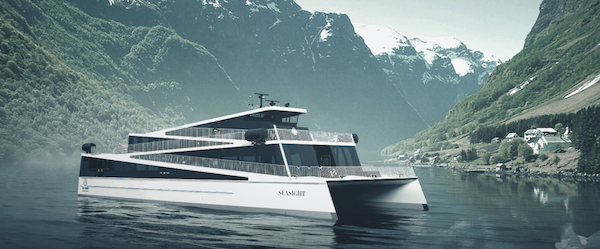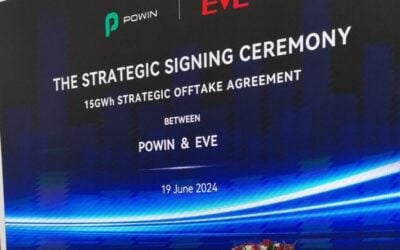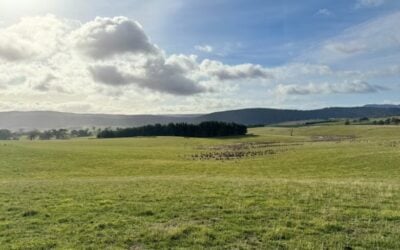
Battery energy storage systems (BESS) from provider NIDEC ASI will be installed for customers Neoen and Uniper at sites in Finland and Sweden.
Nidec ASI said the projects are exemplary of how countries across Scandinavia are starting to use energy storage systems as a key integrator for renewable energy including solar, wind and hydroelectric.
Enjoy 12 months of exclusive analysis
- Regular insight and analysis of the industry’s biggest developments
- In-depth interviews with the industry’s leading figures
- Annual digital subscription to the PV Tech Power journal
- Discounts on Solar Media’s portfolio of events, in-person and virtual
The company added that it believes this example – through which the need for fossil fuels can be reduced while also lowering the overall cost of energy – should be followed by others including its home country, Italy, where a call for tenders for storage systems by grid operator Terna has come to a halt due to COVID-19. Nidec ASI has already worked with the Italian grid operator on a pilot project.
The project awards include Neoen’s 30MW / 30MWh grid-scale project near Lappeenranta, Finland, which Energy-Storage.news reported in early June will be used to help integrate the growing capacity of locally-sited wind energy generation.
Independent power producer Neoen has executed many renewables projects worldwide but is still perhaps best known in the energy storage sector as Tesla’s partner-customer for the lithium-ion battery system used at the Hornsdale Power Reserve facility in South Australia, currently the largest such project in the world at 150MW / 193.5MWh.
For Neoen’s Finland project, it will be Nidec ASI that supplies and installs all BESS components, including auxiliary systems such as power conversion and HVAC, all the way up to the point of grid connection with the nearby substation owned by network operator FINGRID. Nidec ASI, also acting as full engineering, procurement and construction (EPC) partner, said the first containers to build the system have already begun arriving onsite.
Batteries at Sweden hydro plants to provide fast frequency reserve
Meanwhile in Sweden, Uniper, the energy supply company spun out of German mega-utility E.On is combining battery tech with hydroelectric power at two sites to enable faster frequency regulation of the grid.
One battery system at Uniper’s hydro plant in Edsele will be 6MW, the other at another of the company’s hydro facilities in Lövön will be 9MW. According to Uniper, the two sites have been selected due to their suitability to play into the fast frequency reserve market recently opened up by grid operator Svenska Kraftnät.
Combining the batteries with hydroelectric power means that the required storage capacity of the batteries can be fairly low, Uniper said, with testing and installation to take place this year. Uniper said in June that it wants to scale up this solution and seeks “broad implementation in other plants within the group”. Nidec ASI will again assume full EPC duties on those two projects.
The three projects “prove yet again the growing importance which the BESS market is assuming worldwide,” Nidec ASI CEO and Nidec Industrial Solutions chairman Dominique Llonch said.
“I am particularly proud of the results we have achieved in Finland and Sweden, two countries that have been investing in this sector for decades, tangibly contributing to reducing greenhouse gas emissions and promoting the sustainable development of the energy market. These projects prove how Nidec ASI continues to be effectively committed to energy transition for a 100% electric future with a very low environmental impact, offering innovative and customised solutions,” Llonch said.
“It is essential for Italy to follow a similar evolutionary path too. This is why I hope that the recovery plan the Government intends to unveil in September will also focus heavily on renewables, that the Terna project will be able to start again soon, and that we as Nidec ASI will contribute to the realisation of similar systems in the country.”
Nidec ASI, the industrial solutions division of Nidec Corporation, said it has now deployed over 700MWh of BESS projects worldwide, including 162MW of 2019 project acquisitions and 60MW in 2020. This puts it among the leading system integrators for advanced battery storage now chasing the milestone 1GWh of deployments. Rivals Fluence and Tesla are also closing in on this (arbitrary) target, while NEC, another leading player approaching that figure dropped out of the market suddenly earlier this year.
Meanwhile, Energy-Storage.news has so far only reported on a handful of projects in Scandinavia, with a 6.2MWh battery storage system at a 44MW hydroelectric plant in Sweden among the biggest under development, but as argued by Nidec ASI, many appear designed to inform future rapid development of the market and energy system planning. The region could also be getting gigawatt-scale battery production facilities for stationary energy storage as well as for electric vehicles in the near future, with Sweden's Northvolt and Norway's Freyr Battery developing renewable energy-powered factories in their respective home countries – while Northvolt is also planning a huge lithium battery and storage systems factory in Germany.






